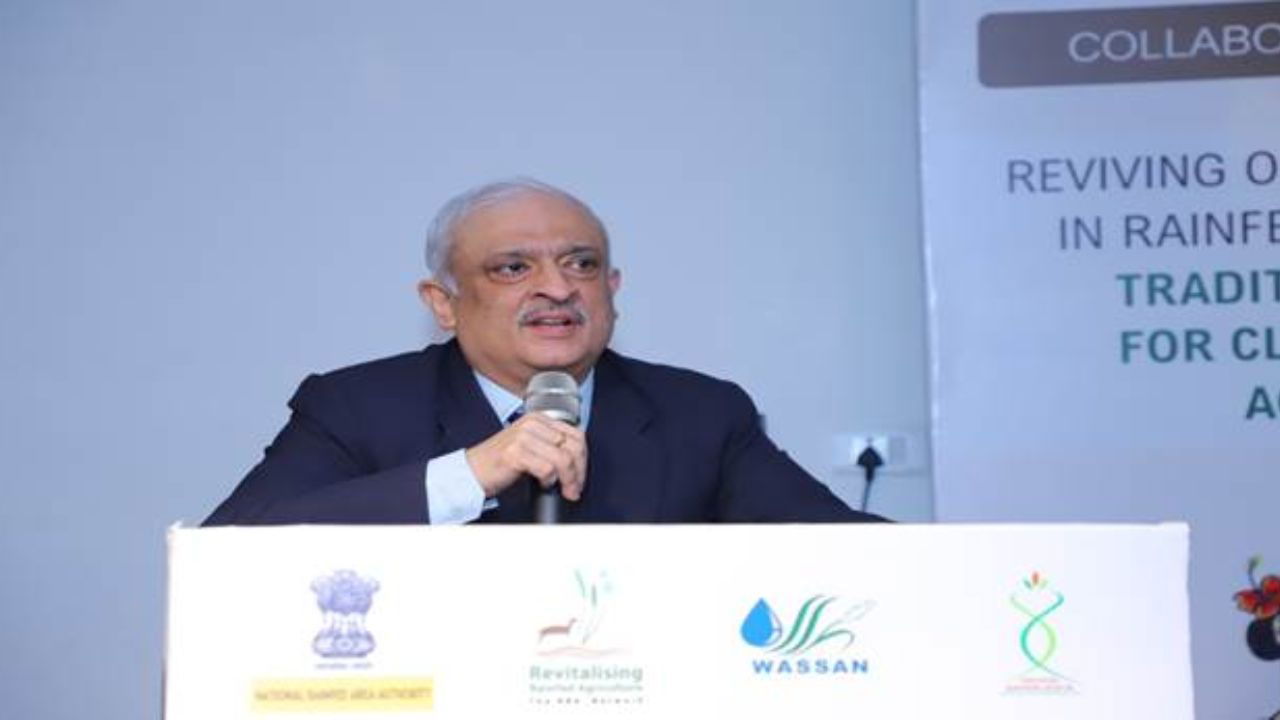
The Multi-Stakeholder Convention on "Reviving Agro-Biodiversity in Rainfed Areas through Traditional Varieties for Climate-Resilient Agriculture" took place in New Delhi on December 26, 2024. The event emphasized the crucial role of traditional crop varieties in addressing the challenges posed by climate change.
Dr. Devesh Chaturvedi, the Union Secretary of Agriculture and Farmers' Welfare, reiterated the ministry's commitment to promoting these varieties through initiatives such as the National Mission for Sustainable Agriculture (NMNF), Farmers' Producer Organizations (FPOs), Seed Development programs, and the National Food Security Mission (NFSM).
He highlighted the advantages of traditional crops, which include superior taste, aroma, nutritional value, and adaptability. Dr. Chaturvedi encouraged the cultivation of these crops in clusters to access premium markets.
Dr. Faiz Ahmed Kidwai, representing the National Rainfed Areas Authority (NRAA), emphasized the authority's role in analyzing state investments and advocating for increased support in rainfed areas. With rainfed agriculture forming the backbone of 61% of India's farming and spanning 50% of the country's land, these areas face unique vulnerabilities, including low soil fertility and erratic rainfall. Informal seed systems, managed by farmers and communities, fulfill 60% of seed requirements in these regions, showcasing the indispensable role of traditional varieties.
Experts like Dr. K.S. Varaprasad, former director of ICAR-IIOR, and Gyanendra Singh, director of ICAR-NBPGR, advocated for the coexistence of traditional and released seed varieties. They stressed the importance of in-situ conservation and urged stronger government policies to safeguard these invaluable genetic resources.
The event brought together champion farmers, seed saviors, and state representatives from 10 states, including Tamil Nadu and Odisha, who showcased indigenous seeds and shared their experiences in conserving traditional crops. Discussions highlighted the need for government support in infrastructure, Minimum Support Price (MSP), and formalization of community-managed seed systems. Participants agreed that linking traditional varieties to natural farming schemes and markets could emulate the successful promotion strategies adopted for millets by the government.
Organized by the NRAA in partnership with the Revitalising Rainfed Agriculture Network (RRAN) and Watershed Support Services & Activities Network (WASSAN), the convention concluded with a call for action. It proposed policy recommendations to the Ministry of Agriculture and Farmers' Welfare, aiming to revive and mainstream crop diversity.
As climate change increases vulnerabilities, preserving traditional varieties becomes a source of resilience for India’s rainfed agriculture.











